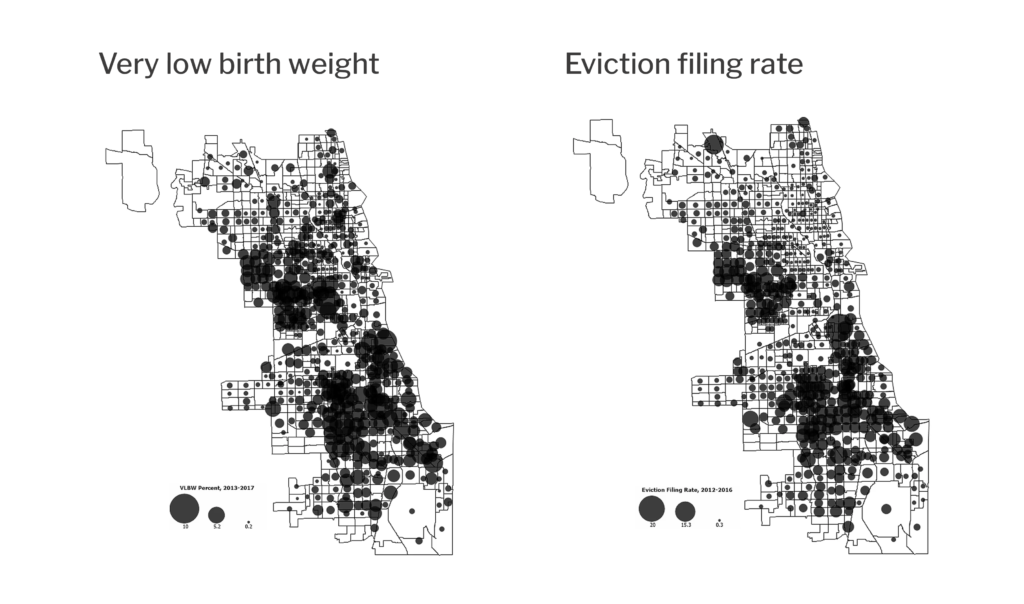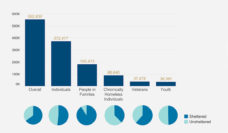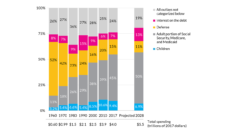In 2016, over 38 million people in the US rented their homes. Landlords filed an eviction against 2.3 million of those renters–900,000 were evicted. For adults, evictions have been linked to poor self-reported health, chronic diseases, high blood pressure, domestic violence, and child maltreatment. Losing one’s home also increases the risks of depression, anxiety, psychological distress, and suicide in adults.
There is little data describing the effects of eviction on child health, although prior research shows that evictions surely causes stress. Cory Hazekamp and colleagues led a study adding to our understanding of how evictions affect pediatric health: they compared eviction filings and proceedings to rates of infant mortality and very low birth weight between different census tracts in Chicago. Very low birth weight predicts maternal and child health outcomes and, in the short term, elevates odds of infant death. In the long term, eviction reduces quality of life, mental health, and motor skills in adulthood.
Hazekamp’s team found that neighborhoods with more evictions had high rates of very low birth weight and infant mortality. Evictions are filed more frequently than they are carried out in Chicago and elsewhere in the country. In the study, both filings and actual evictions significantly impair pediatric health, although proceedings had a stronger effect.
Low birth weight and infant mortality occur more often in low-resource communities, and in the study, both health outcomes were correlated with race.
One difficulty with studying evictions is measuring the consequences of informal evictions. Avoiding housing courts, some landlords execute evictions informally by changing locks or paying residents to leave. These evictions likely impact health, yet they can’t be formally measured because they are never officially filed.
While eviction is related to poor pediatric health outcomes, the researchers recognize housing stability is entangled with other variables, namely income, neighborhood crime rates, and race and ethnicity. In Chicago, the census tracts with the highest eviction rates and poorest pediatric health outcomes were on the West and South Sides. These areas carry legacies of racial segregation, housing mostly Black and Latinx residents in neighborhoods known for higher levels of violence, poorer education, and food deserts.

Hazekamp C, Yousuf S, Day K, Daly MK, Sheehan K. Eviction and Pediatric Health Outcomes in Chicago. J Community Health. 2020
Low birth weight and infant mortality occur more often in low-resource communities, and in the study, both health outcomes were correlated with race. In Black households, nearly 14 infants died per 1,000 births, while in White households, seven deaths were reported per 1,000 births. These disparities reflect similar findings in maternal health data from other areas in the US.
Stable housing is a necessity—a necessity not afforded to all Americans. In Chicago, chronic eviction and housing instability meant increased odds of an underweight baby or of an infant’s death. Recognizing this, the authors suggest that the most effective prenatal care for unstably-housed mothers may be a prescription for a home.
Photo via Getty Images














